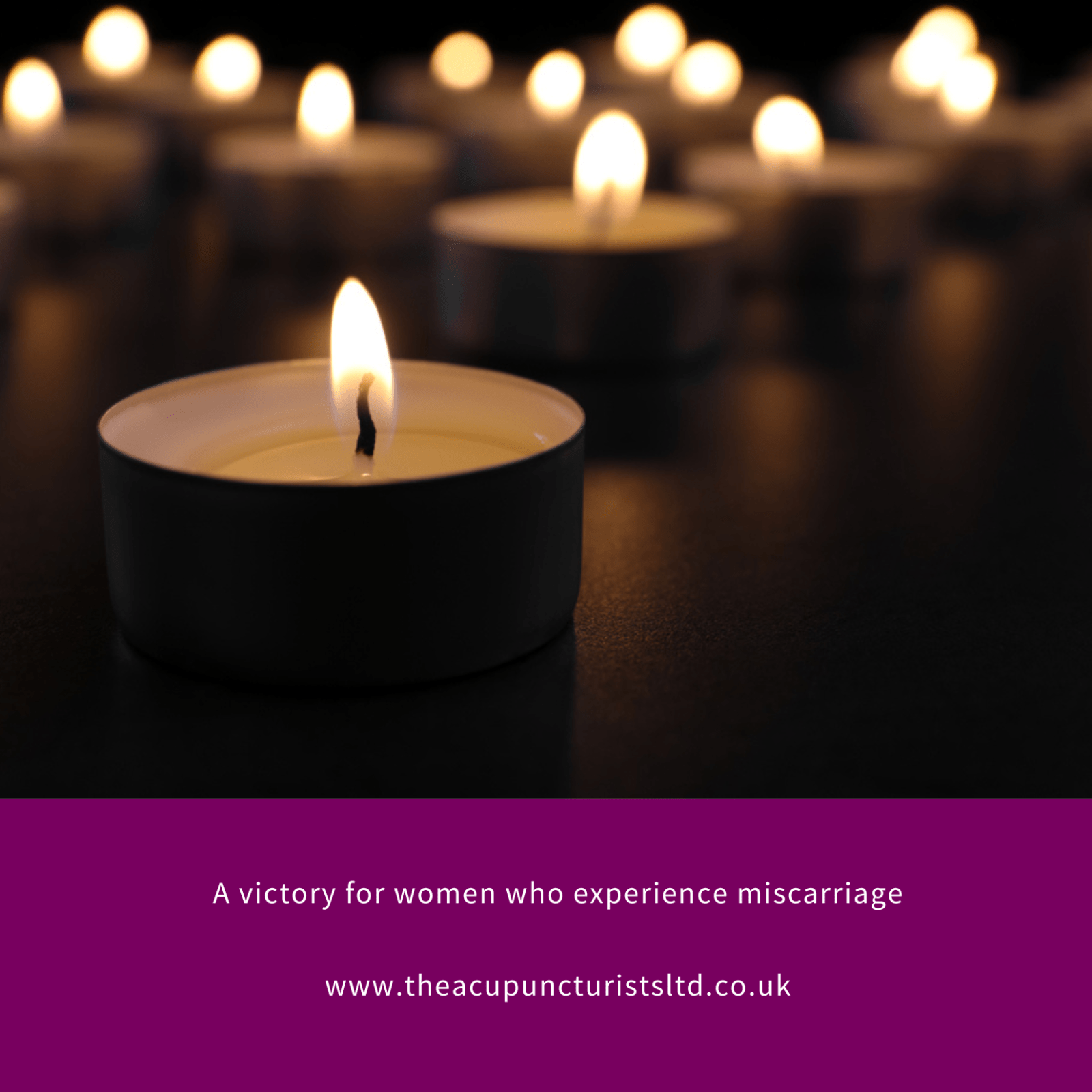
A victory for every woman who experiences miscarriage
You may have read recently how a campaign led by the singer Mylene Klass to improve support for women and families affected by miscarriage has finally convinced the government to change its policy on access to emotional and physical care after the loss of a baby.
If you’ve been through the unimaginable trauma of miscarriage yourself and have tried to find help through the NHS, you’ll know only too well how criminally outdated public health policy on this subject has been.
For those who have been lucky enough to have a relatively trouble-free pregnancy and have celebrated the birth of a healthy child, it will probably come as a shock to discover that up until now women have been forced to experience three miscarriages before they are able to access NHS support.
That’s the loss of three small lives, each one of them eagerly – often desperately – awaited. Each one the source of grief so visceral that many women and couples never fully recover from it.
Mylene Klass found fame 22 years ago when the band Hear’Say was created as part of the Pop Idol TV show. Now 45, she has experienced 4 miscarriages and has used that experience to work with Labour MP Olivia Blake to ensure help will now be available to women immediately, from their first (and, hopefully, only) miscarriage.
For us here at The Acupuncturists this is brilliant news that has been too long in coming.
As specialists in acupuncture for women’s health, particularly as it relates to fertility and birth, we all too often witness the devastating emotional and physical impact of miscarriage on women and their families.
In this blog, we’ll be looking at the common causes and risks surrounding miscarriage, and exploring how acupuncture can support you in fertility, pregnancy and in the event of miscarriage.
What causes miscarriage?
It’s a strange contradiction that although there are many possible causes for a miscarriage, the cause in any individual case is often not identified. This is generally because the potential reasons are not solely associated with miscarriage and can be hard to determine.
Statistically, according to the NHS, around 75% of miscarriages happen within the first three months, or first trimester, of pregnancy – and these are usually the result of a problem with the unborn baby (foetus) itself.
These may include chromosome issues that determine development of the foetus.
Miscarriages beyond this period may be the result of an underlying health condition in the mother, an infection around the baby, or the neck of the womb opening too soon.
First trimester miscarriages
First trimester miscarriages are often caused by problems with the chromosomes of the foetus. These issues are generally not recurrent and do not necessarily indicate an issue with either the mother or the father.
First trimester miscarriage may also be down to the development of the placenta, which links the mother’s blood supply to her baby’s.
Risks
Miscarriage in the first three months may happen by chance, but certain things can increase the risk of it happening. These include:
- Age: Women under the age of 40 have a 20% risk of miscarriage. This increases to 50% in women over the age of 45
- Obesity
- Use of tobacco or drugs, and excessive consumption of alcohol
In the second trimester or pregnancy miscarriage is more likely due to serious infections or long-term or chronic health issues such as diabetes, severe high blood pressure, lupus, over- or underactive thyroid, or antiphospholipid syndrome (also known as APS – an autoimmune deficiency also known as Hughes Syndrome that can increase the likelihood of blood clots).
Polycystic ovary syndrome, a condition where hormonal changes within the ovaries cause them to become enlarged, is known to be a leading cause of infertility and there is some evidence to suggest it may also be linked to an increased risk of miscarriage.
Mental health and miscarriage
While stress, anxiety and depression are all known to have an effect on fertility, there is no medically recognised link between your emotional state during pregnancy and miscarriage.
Other myths around the causes of miscarriage include taking exercise (although you should definitely talk to your GP or midwife to determine the type and amount of exercise that will be suitable for you during pregnancy), having sex during pregnancy, and eating spicy food.
Recurrent miscarriages
About 1 in 100 women experience recurrent miscarriages (3 or more in a row) and many of those women go on to have a successful pregnancy.
Acupuncture and miscarriage
Acupuncture is a traditional Chinese medicine practice that involves the insertion of thin needles into specific points on the body. The goal is to balance the flow of energy or “qi” within the body, which can help to achieve health balance and alleviate a variety of conditions.
Some couples struggling with infertility or recurrent miscarriages have turned to acupuncture as a complementary therapy to support their reproductive health.
Acupuncture can help improve blood circulation to the reproductive organs, regulate hormones, and reduce stress, which could potentially contribute to a healthier pregnancy.
Although scientific evidence of the role acupuncture may play in helping to prevent miscarriage, there is a lot of evidence – both anecdotal and clinical – to show that acupuncture can help to support better general health.
This, in turn, may also help to address some of the risks we’ve talked about earlier in this article – such as immune resilience, anxiety and stress (which can be a causal factor in hypertension), and hormonal balance.
Acupuncture is safe when performed by a trained and licensed practitioner, but we always recommend our patients discuss any complementary therapy with their health practitioner, especially as certain acupuncture points are contraindicated during pregnancy.
Acupuncture itself is not a standalone solution for preventing miscarriages. A holistic approach to pregnancy includes proper prenatal care, a healthy lifestyle, managing underlying medical conditions, and following medical advice from a healthcare provider.
If you’d like to know more about how acupuncture can support you on your fertility journey and during your pregnancy, please get in touch for an informal, completely confidential chat.
